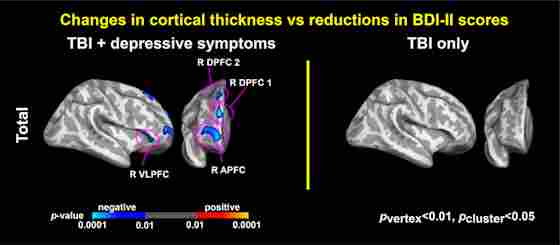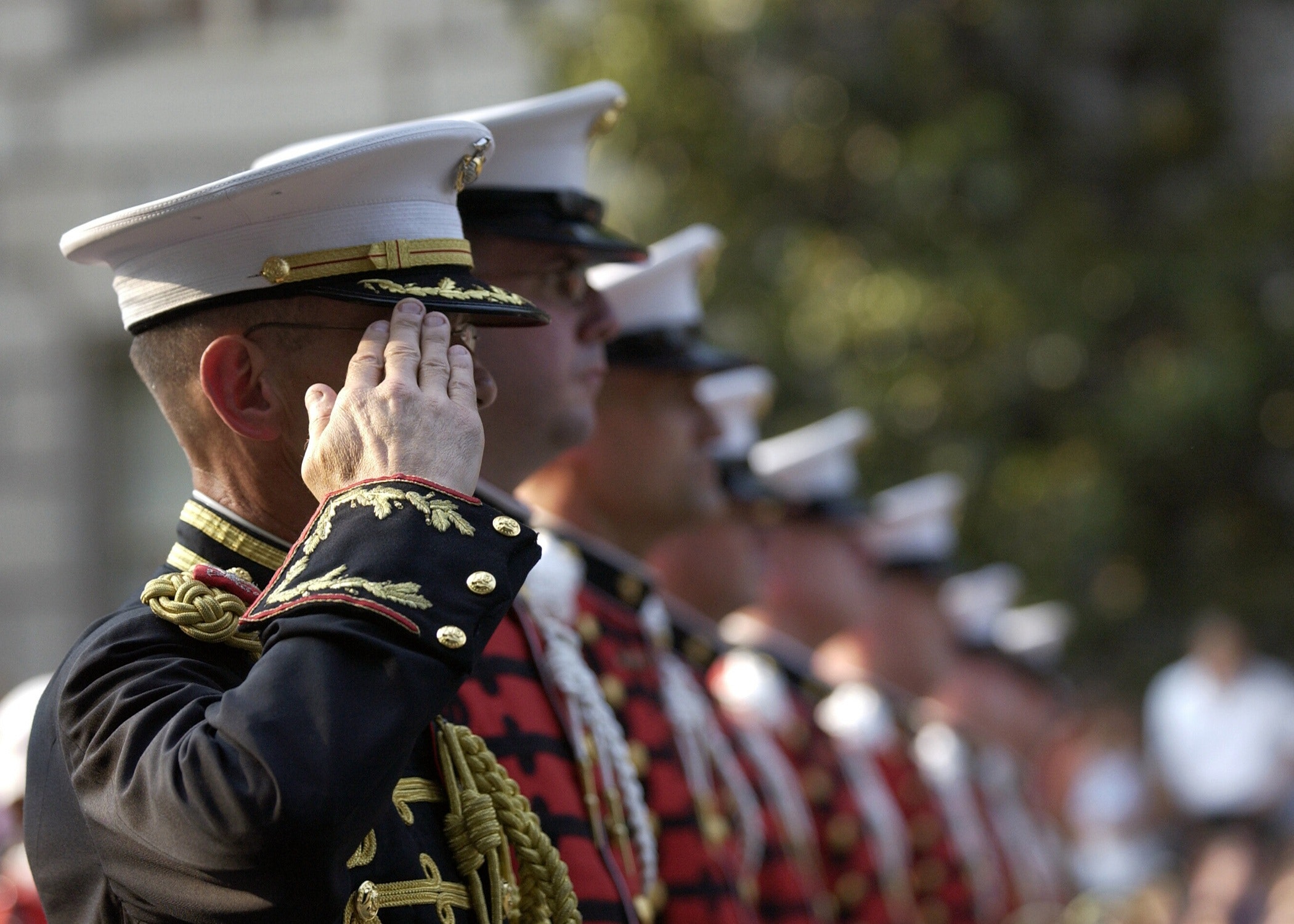
Associations between depressive symptoms and cortical thickness. Colormaps represent statistically significant associations of reduced BDI–II total scores with increased cortical thickness over time (pvertex < .01, pcluster < .05). R = right; VLPFC = ventrolateral prefrontal cortex; APFC = anterior prefrontal cortex; DPFC = dorsal prefrontal cortex [Color figure can be viewed at wileyonlinelibrary.com]





